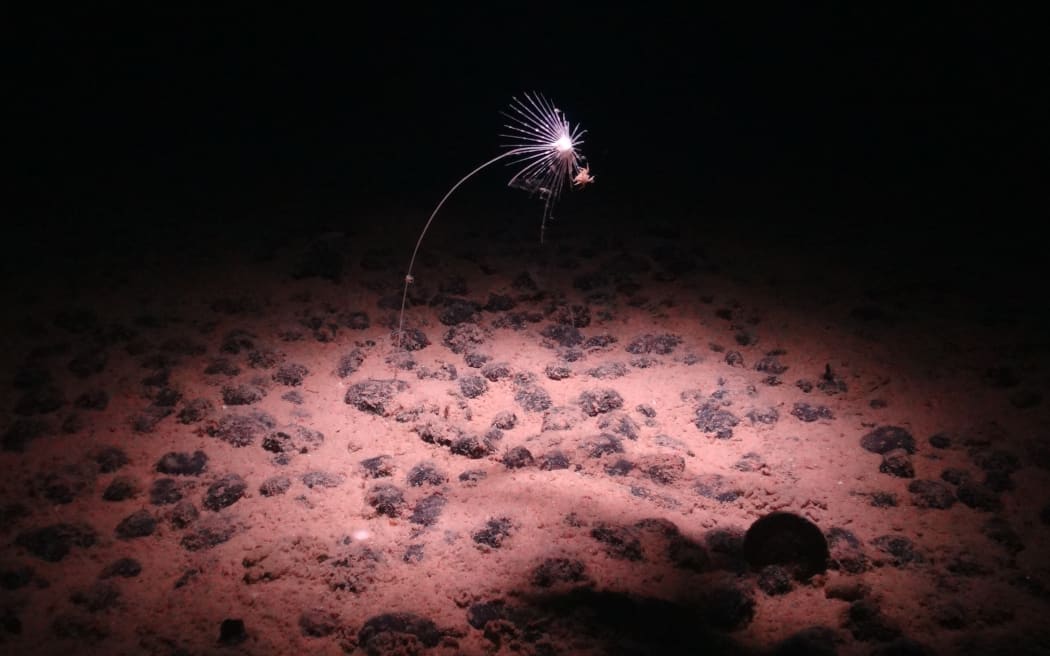World
The Metals Company Advances Deep Sea Mining Plans in the Pacific

The Canadian mining group The Metals Company (TMC) is progressing toward deep sea mining in the Pacific, partnering with the nations of Nauru and Tonga. This move follows changes in U.S. regulations that position the country as a key player in the regulation of deep sea mining in international waters, despite criticism from various international bodies and legal experts.
Documents released by TMC in August 2023 indicate that the company has applied for a commercial mining permit through the U.S. for a portion of Nauru’s designated area within the Clarion Clipperton Zone (CCZ). The CCZ is a vast expanse of the Pacific Ocean noted for its potential mineral wealth. According to TMC’s documents, the company aims for “commercial production” to commence as early as 2027.
Historically, Nauru and Tonga have maintained relationships with TMC for over a decade, granting them special rights to explore their respective territories in the CCZ. Previously, these arrangements were regulated by the International Seabed Authority (ISA), recognized globally as the authority overseeing deep sea mining. However, a recent executive order from former U.S. President Donald Trump has shifted oversight, allowing U.S. authorities to operate alongside the ISA in this domain.
Critics have voiced concerns about this development, arguing it undermines international law and sets a precedent that could lead to irresponsible mining practices. Joey Tau, coordinator of the Pacific Network on Globalisation (PANG), emphasized the need for independent scientific research to ensure that deep sea mining benefits humanity as a whole rather than serving corporate interests. He cautioned that deep sea mining poses significant unknowns, stating, “Mining has a really bad history in this part of the world.”
TMC’s recent applications for exploration permits for both Nauru and Tonga have raised eyebrows. While the company has existing exploration contracts with the ISA for these areas, it has opted for the U.S. pathway, which some view as a strategic move to circumvent regulatory delays. TMC has promised that both Nauru and Tonga would receive benefits should mining operations commence, along with commitments to social and community initiatives.
Despite these assurances, skepticism remains among local leaders. Drew Havea, chairman of the Civil Society Forum of Tonga, expressed disappointment with his government’s partnership with TMC. He has called for a referendum during the upcoming November elections to gauge public sentiment on deep sea mining. “I think we need to respect the view of the people, and we need to be accountable to them,” Havea stated.
Attempts by RNZ Pacific to obtain comments from the governments of both Tonga and Nauru have gone unanswered. The ISA also declined to provide a statement on the matter. In contrast, the National Oceanic and Atmospheric Administration (NOAA)—the U.S. agency tasked with overseeing deep sea mining—stated via email that its policies dictate how mining applications are reviewed in international waters. NOAA has also indicated that it is working to streamline its application process.
As the situation evolves, the implications of TMC’s push for deep sea mining in the Pacific remain a topic of intense debate, with significant potential impacts on both local communities and international environmental standards.
-

 World4 months ago
World4 months agoTest Your Knowledge: Take the Herald’s Afternoon Quiz Today
-

 Sports4 months ago
Sports4 months agoPM Faces Backlash from Fans During Netball Trophy Ceremony
-

 Lifestyle4 months ago
Lifestyle4 months agoDunedin Designers Win Top Award at Hokonui Fashion Event
-

 Entertainment5 months ago
Entertainment5 months agoExperience the Excitement of ‘Chief of War’ in Oʻahu
-

 Sports4 months ago
Sports4 months agoLiam Lawson Launches New Era for Racing Bulls with Strong Start
-

 World5 months ago
World5 months agoCoalition Forms to Preserve Māori Wards in Hawke’s Bay
-

 Health4 months ago
Health4 months agoWalking Faster Offers Major Health Benefits for Older Adults
-

 Lifestyle4 months ago
Lifestyle4 months agoDisney Fan Reveals Dress Code Tips for Park Visitors
-

 Politics4 months ago
Politics4 months agoScots Rally with Humor and Music to Protest Trump’s Visit
-

 Top Stories5 months ago
Top Stories5 months agoUK and India Finalize Trade Deal to Boost Economic Ties
-

 Health2 months ago
Health2 months agoRadio Host Jay-Jay Feeney’s Partner Secures Visa to Stay in NZ
-

 World5 months ago
World5 months agoHuntly Begins Water Pipe Flushing to Resolve Brown Water Issue









